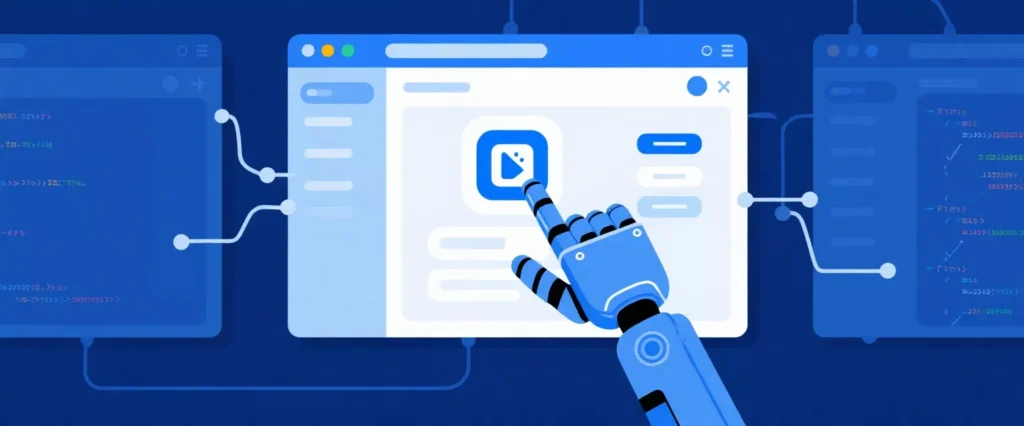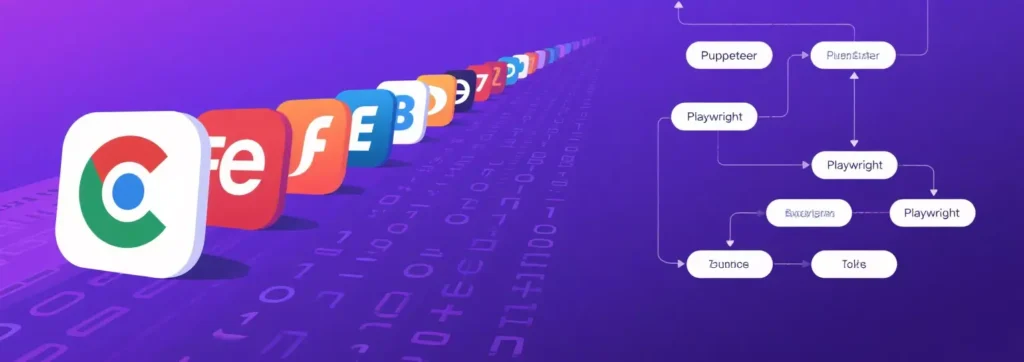In the early days of the internet, web scraping was simple. A scraper could download a website’s HTML file and find all the data it needed. Today, that’s like trying to understand a book by only reading its cover. The modern web is dynamic, interactive, and powered by JavaScript, with the most valuable data loading long after the initial page. To access this data, you need a more powerful technique: browser automation. This guide explains what browser automation is, why it’s essential for modern scraping, and how to deploy it successfully at scale.

The Challenge of the Dynamic Web
The primary reason browser automation is now essential is the rise of dynamic content. Websites built with modern frameworks like React, Angular, or Vue load a basic HTML shell first, then use JavaScript to fetch and display the actual data.
This means a traditional scraper that only downloads the initial HTML will find nothing of value. It cannot see:
Product prices that load from an API.
User reviews that appear after clicking a “load more” button.
Search results that populate as you type.
Content that appears on an “infinite scroll” feed.
To get this data, your scraper needs to act not like a script, but like a real human user.

What is Browser Automation? A Clear Definition
Browser automation is the practice of using a software library to programmatically control a real web browser (like Chrome or Firefox). Your code can tell the browser what to do: open a URL, click a button, fill out a form, scroll down a page, and wait for content to load.
This is often done in “headless” mode, where the browser runs in the background without a visible user interface, making it perfect for efficient server-side automation. By controlling a real browser, your scraper can execute all the necessary JavaScript and see the final, fully-rendered page—just as you would.
The Titans of Browser Automation: Your Toolkit
Three main libraries dominate the browser automation landscape:
Selenium: The long-standing veteran of the field. It’s incredibly versatile, supporting many different browsers and programming languages.
Puppeteer: A modern Node.js library developed by Google, specifically for controlling Chrome and Chromium.
Playwright: Created by a team from Microsoft (including former Puppeteer developers), Playwright is a next-generation tool that supports Chrome, Firefox, and WebKit with a single, streamlined API.
The Golden Rule: Automation is Not Anonymity
This is the most critical concept for any developer to understand. Automating a browser perfectly mimics a human user’s actions, but it does absolutely nothing to hide their network identity (your IP address).
If you run multiple browser automation scripts from your server or home computer, every single one of those “users” will have the same IP address. Any website with basic security will immediately detect this unnatural activity, flag your IP, and block you.
The Complete Solution: Combining Automation with Proxies
To achieve true scalability and avoid detection, you must combine browser automation with a robust proxy network. The professional workflow involves launching each automated browser instance with its own unique IP address.
This is where a service like IPFLY’s residential proxies becomes the foundational layer of your scraping operation. By configuring your Playwright, Puppeteer, or Selenium script to launch each browser through a different IPFLY residential proxy, you ensure that every session appears as a unique, real user from a different geographic location.
This powerful combination of realistic browser automation (the “what”) and a legitimate IP address (the “who” and “where”) is the key to scraping even the most sophisticated and heavily-protected websites without being blocked.
Whether you’re doing cross-border e-commerce testing, overseas social media ops, or anti-block data scraping—first pick the right proxy service on IPFLY.net, then join the IPFLY Telegram community! Industry pros share real strategies to fix “proxy inefficiency” issues!

Browser automation is the essential and required technique for extracting data from the modern, dynamic web. It allows your scraper to see and interact with pages just like a human. However, this powerful capability can only be deployed successfully at scale when it is built on a foundation of anonymity and trust. This foundation is provided by a high-quality residential proxy network from a provider like IPFLY, which gives each of your automated browsers the unique identity it needs to operate without detection.


